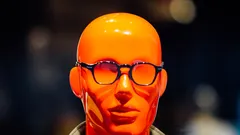122
8
5 minutes
Suggested Articles

First-generation Ivy Leaguers triumph over unique college challenges
Discover key insights, life hacks, and data-driven tips for first-generation college students thriving in prestigious U.S. universities. Find practical strategies, unique challenges, and fresh perspectives essential for student success.

AI Revolutionizes Early Autism Detection With LIA, Offering New Hope
Civic Education

AI transforms homework into a tool for true mastery and confidence
Civic Education

Travelers unlock seamless vacations and big savings with AI trip planners
Resources & Tools

How ChatGPT Is Changing Your Memory and Critical Thinking—And What to Do
News & Updates

Teachers unions team up with OpenAI and Microsoft to transform classrooms with AI
Civic Education

Japan’s Drones and AI Are Revolutionizing Forest Restoration Worldwide
Civic Education

The AI pen that captures every meeting and creates actionable to-do lists
Resources & Tools

Earning a big raise for refusing AI proves the timeless value of human skills
Hiring

Breakthrough robot scooter empowers seniors with effortless independence
News & Updates

Thermal AR glasses unlock superhuman vision for safety and everyday adventure
Resources & Tools

First-generation Ivy Leaguers triumph over unique college challenges
Hiring

Americans brace for possible Social Security cuts that reshape retirement
News & Updates

Why this Florida data leak changes how we think about privacy
News & Updates

Build your own AI chatbot and unlock hands-on tech superpowers
Resources & Tools

How to outsmart hidden medical expenses in your golden years
Civic Education

California workers secure jobs this summer with new 2025 laws
Hiring
 Love Women Vibes
Love Women Vibes

Comments